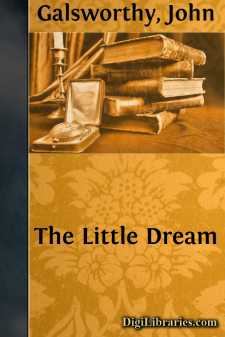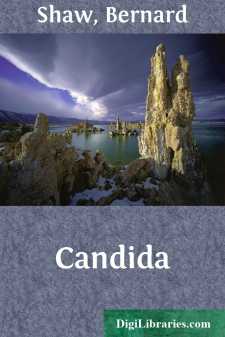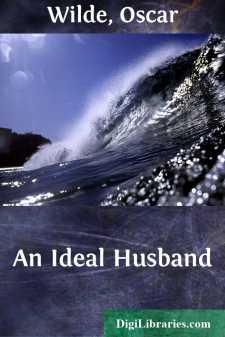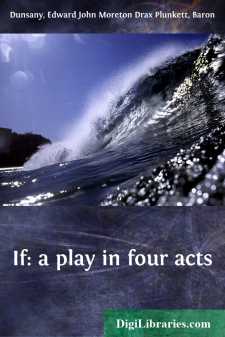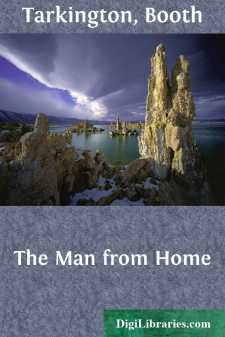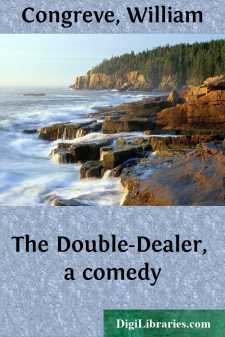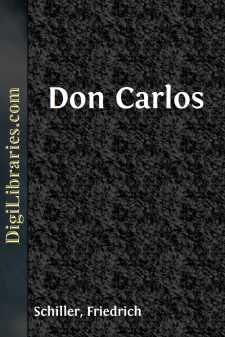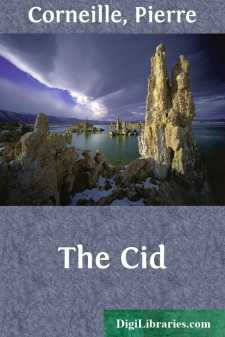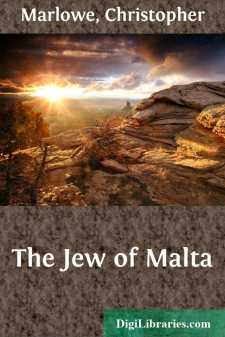Drama Books
Sort by:
by:
Oliver Huckel
PARSIFAL. PART I THE COMING OF PARSIFAL Within a noble stretch of mountain woods,Primeval forest, deep and dark and grand,There rose a glorious castle towering high,—And at its foot a smiling, shimmering lakeLay in the still lap of a verdant glade.'T was daybreak, and the arrows of the dawnWere shot in golden glory through the trees,And from the castle came a trumpet blastTo waken life in all...
more...
by:
John Galsworthy
SCENE I It is just after sunset of an August evening. The scene is aroom in a mountain hut, furnished only with a table, benches.and a low broad window seat. Through this window three rockypeaks are seen by the light of a moon which is slowly whiteningthe last hues of sunset. An oil lamp is burning. SEELCHEN, amountain girl, eighteen years old, is humming a folk-song, andputting away in a cupboard...
more...
by:
Bernard Shaw
ACT I A fine October morning in the north east suburbs of London, a vast district many miles away from the London of Mayfair and St. James's, much less known there than the Paris of the Rue de Rivoli and the Champs Elysees, and much less narrow, squalid, fetid and airless in its slums; strong in comfortable, prosperous middle class life; wide-streeted, myriad-populated; well-served with ugly iron...
more...
by:
Oscar Wilde
FIRST ACT SCENE The octagon room at Sir Robert Chiltern’s house in Grosvenor Square. [The room is brilliantly lighted and full of guests. At the top of the staircase stands lady chiltern, a woman of grave Greek beauty, about twenty-seven years of age. She receives the guests as they come up. Over the well of the staircase hangs a great chandelier with wax lights, which illumine a large...
more...
ACT I SCENE 1 A small railway station near London. Time: Ten years ago. BERT'Ow goes it, Bill? BILLGoes it? 'Ow d'yer think it goes? BERTI don't know, Bill. 'Ow is it? BILLBloody. BERTWhy? What's wrong? BILLWrong? Nothing ain't wrong. BERTWhat's up then? BILLNothing ain't right. BERTWhy, wot's the worry? BILLWot's the worry? They don't give...
more...
by:
Booth Tarkington
THE FIRST ACT SCENE: The terrace of the Hotel Regina Margherita, on the cliff at Sorrento, overlooking the Bay of Naples. There is a view of the bay and its semi-circular coast-line, dotted with villages; Vesuvius gray in the distance. Across the stage at the rear runs a marble balustrade about three feet high, guarding the edge of the cliff. Upon the left is seen part of one wing of the hotel,...
more...
by:
William Congreve
TO THERIGHT HONOURABLE CHARLES MONTAGUE,ONE OF THE LORDS OF THE TREASURY. Sir,—I heartily wish this play were as perfect as I intended it, that it might be more worthy your acceptance, and that my dedication of it to you might be more becoming that honour and esteem which I, with everybody who is so fortunate as to know you, have for you. It had your countenance when yet unknown; and now it is made...
more...
SCENE I. The Royal Gardens in Aranjuez. CARLOS and DOMINGO. DOMINGO.Our pleasant sojourn in AranjuezIs over now, and yet your highness quitsThese joyous scenes no happier than before.Our visit hath been fruitless. Oh, my prince,Break this mysterious and gloomy silence!Open your heart to your own father's heart!A monarch never can too dearly buyThe peace of his own son—his only son.[CARLOS looks...
more...
by:
Pierre Corneille
Act the First. Scene I.—Chimène and Elvira. Chimène. Elvira, have you given me a really true report? Do you conceal nothing that my father has said? Elvira. All my feelings within me are still delighted with it. He esteems Rodrigo as much as you love him; and if I do not misread his mind, he will command you to respond to his passion. Chimène. Tell me then, I beseech you, a second time, what makes...
more...
THE JEW OF MALTA. Enter MACHIAVEL. MACHIAVEL. Albeit the world think Machiavel is dead,Yet was his soul but flown beyond the Alps;And, now the Guise is dead, is come from France,To view this land, and frolic with his friends.To some perhaps my name is odious;But such as love me, guard me from their tongues,And let them know that I am Machiavel,And weigh not men, and therefore not men's...
more...



